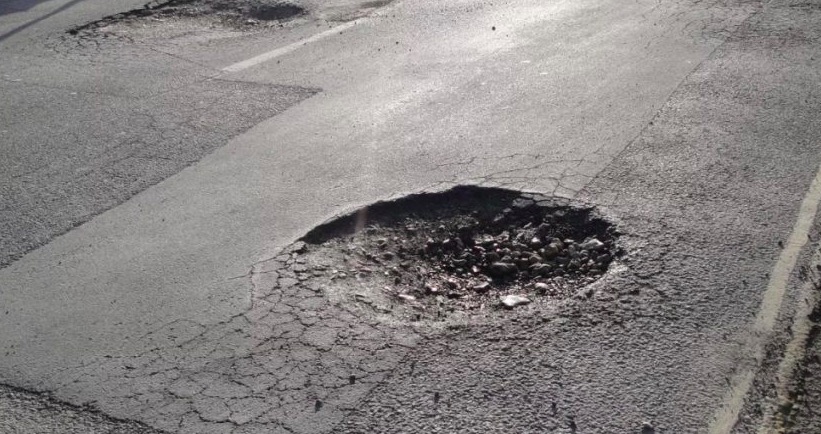Driven to despair: Record concerns over Britain’s deteriorating local roads, RAC

Drivers’ dissatisfaction with the state of Britain’s local roads has reached an all-time high, according to new data from the RAC.
For the first time, more than half of the drivers surveyed—nearly six in ten (56%)—identified the poor condition and maintenance of roads under local council control as a top motoring concern.
This marks a significant increase from 49% in 2023.
Frustration with local roads now overshadows concerns about vehicle insurance costs by 21 percentage points, and fuel costs by 24 points.
The RAC Report on Motoring highlights a worrying trend: almost three-quarters (73%) of drivers report that the condition of local roads has worsened over the past year. This is up from 67% in 2023 and just 49% in 2019. A mere 6% believe road conditions have improved in the last year, reflecting the mounting difficulties faced by local councils in maintaining their road networks.
The consequences for vehicles are stark. Over a quarter of drivers (27%) reported damage to their cars due to potholes in the past 12 months, with this figure rising to 32% in rural areas.
The most common issues are punctures (47%), wheel damage (43%), and broken suspension springs (29%), with repairs costing up to £460 for a family car.
The report indicates that rural areas are suffering the most, with 81% of drivers saying road conditions have worsened, followed closely by suburban areas at 78%.
Even in urban centres, a majority (53%) notice a decline in road quality.
The East Midlands (85%), South East (83%), and South West (79%) have the highest dissatisfaction rates, though even in London, where 18% of drivers noted improvements, half of the respondents still observed a deterioration.
Supporting the survey findings, RAC breakdown data reveals that 25,085 pothole-related incidents were attended in the year leading up to June 2024, bringing the total since 2020 to a staggering 167,000.
While potholes are the primary concern, nearly all drivers who noted worsening road conditions (98%) also pointed to issues like poor drainage (61%), faded road markings (58%), and poor signage visibility (34%).
Poor drainage, in particular, exacerbates the dangers posed by potholes, especially when they are hidden by standing water.
The RAC’s findings also show increased concern about the state of motorways and dual carriageways, with 16% of drivers naming it a top concern, up from 11% in 2023.
The RAC has called on the new Secretary of State for Transport and the Minister for the Future of Roads to address the critical need for increased funding for road maintenance, with clarity on this issue expected in the upcoming October Budget.
Roads maintenance in Wales is a devolved matter as funding is handed out by the Welsh Government to local councils.
The RAC acknowledges that the problem extends beyond just funding, as highlighted by the National Audit Office’s recent report, which identified multiple systemic issues, including the allocation of maintenance funds and the lack of a comprehensive assessment of road conditions under council control.
Simon Williams, RAC Head of Policy, stated, “These new figures are a damning condemnation of the commitments made by previous governments to fix Britain’s perpetual pothole plague. It’s as clear as day that councils simply haven’t had the financial support they need to bring the standard of the roads in their care up to a reasonable standard.
“Whatever promises about road maintenance funding that have been made in the past—whether that’s through things like the Pothole Action Fund or so-called ‘Challenge’ funds—haven’t delivered. And it’s all road users, including drivers, bus users, and those on two wheels, who are continuing to pay the price. At best, journeys are made downright uncomfortable as a result of potholes, while at worst they cause expensive damage or even represent a danger to life and limb.
“It is absolutely remarkable that, on average, drivers we surveyed are far more concerned about the state of their local roads this year than they are about either the cost of motor insurance—which has been rocketing in recent years—or the cost of fuel, which is still at an uncomfortably high level. If this doesn’t underline the seriousness of the situation we now find ourselves in, we’re not sure what does.
“The new Government simply must do something differently. Without a promise of far more funds for councils—something we will push hard for ahead of the autumn Budget—its options are extremely limited. Put bluntly, the less we spend as a nation on our roads now, the more it will cost us in the future. That’s the pattern we’ve been in for years now, as is clearly shown by data from ourselves and from many other parts of the industry. So, the ultimate question is this—in terms of the inevitable costs we’ll face in the future, can we really afford not to fix our dilapidated roads?
“Drivers, who contribute billions to the Exchequer in taxes every year, have been driven to despair by a local road network that, in far too many parts of the country, is just going from bad to worse. It shouldn’t be this way. They need something to believe in from both national and local government. Anything less than a step change in the condition of the roads over the course of this Parliament simply will not do.”
Spotted something? Got a story? Email: [email protected]
Latest News
